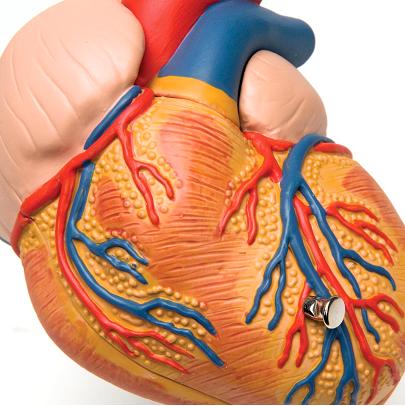Left Ventricular Hypertrophy Symptoms, Causes, Diagnosis and Treatment

What Is Left Ventricular Hypertrophy?
Left ventricle is the heart’s main pumping chamber while hypertrophy means enlargement. The name itself describes the condition completely. Left ventricular hypertrophy is common in people suffering from heart problems and/or hypertension. High blood pressure means that blood starts pumping at a higher rate. This imposes burden on the heart due to additional work and eventually the walls of heart chamber gets thick leading to left ventricular hypertrophy. Some other problems like heart attack and valve disease leads to enlargement of heart but this is a different condition than left ventricular hypertrophy.
What Are The Symptoms Of Left Ventricular Hypertrophy?
The symptoms of left ventricular hypertrophy do not evolve promptly. At later stages, however, the following symptoms may evolve:
- Fainting.
- Dizziness.
- Breathing problems.
- Pain in chest.
- Palpitations.
Since the symptoms evolve at later stages, it is highly recommended that victims must see doctors immediately. Controlling hypertension is required.
What Causes Left Ventricular Hypertrophy?
Apart from high blood pressure, there are some other factors resulting in faster pumping of heart. This rapid pumping thickens the muscle tissue of chamber’s wall and causes left ventricular hypertrophy. These factors include:
- Hypertrophic cardiomyopathy involves thickness of myocardium.
- Athletic training.
- Narrowing of aortic valve i.e. aortic valve stenosis.
- Congenital heart disease.
What Are The Risk Factors Of Left Ventricular Hypertrophy?
The following factors increase the risk of left ventricular hypertrophy in a person:
- Obesity leading to high blood pressure.
- Some specific genes.
- Aortic stenosis.
What Are The Complications Of Left Ventricular Hypertrophy?
Since the function and structure of the ventricle changes due to left ventricular hypertrophy, the following complications are likely to occur:
- Heart failure since the thickness of chamber prevents heart from pumping sufficient blood.
- Heart attacks since blood supply to heart is interrupted.
- Unexpected breathing problem and unconsciousness.
- Impaired heart rhythm or arrhythmia.
In order to prevent these complications, treatment is immediately required.
How Is Left Ventricular Hypertrophy Diagnosed?
The following screening tests are well-known for diagnosing left ventricular hypertrophy:
- Echocardiogram in which the walls of the chamber i.e. ventricle is clearly visible. It also helps doctors in observing the how much blood is being pumped in a given time period. Therefore, echocardiogram is considered as the best test to diagnose left ventricular hypertrophy.
- Electrocardiogram or ECG to determine heart functioning.
- Magnetic resonance imaging or MRI.
Apart from these screening tests that specifically diagnose left ventricular hypertrophy, doctors may also suggest other heart-related tests that focus on hypertension.
How Is Left Ventricular Hypertrophy Treated?
The treatment of left ventricular hypertrophy depends on the factor that caused the condition. Therefore, a thorough diagnosis is required before doctors could recommend a treatment plan.
The following are, however, generally used to treat left ventricular hypertrophy:
- Using medications like thiazide diuretics, angiotensin-converting enzyme inhibitors, beta blockers, angiotensin receptor blockers and calcium channel blockers, depending on the underlying cause.
- Repairing or, at times, replacing the aortic valve when other simpler treatments fail.
- Medications like statins to reduce cholesterol.
By : Natural Health News




